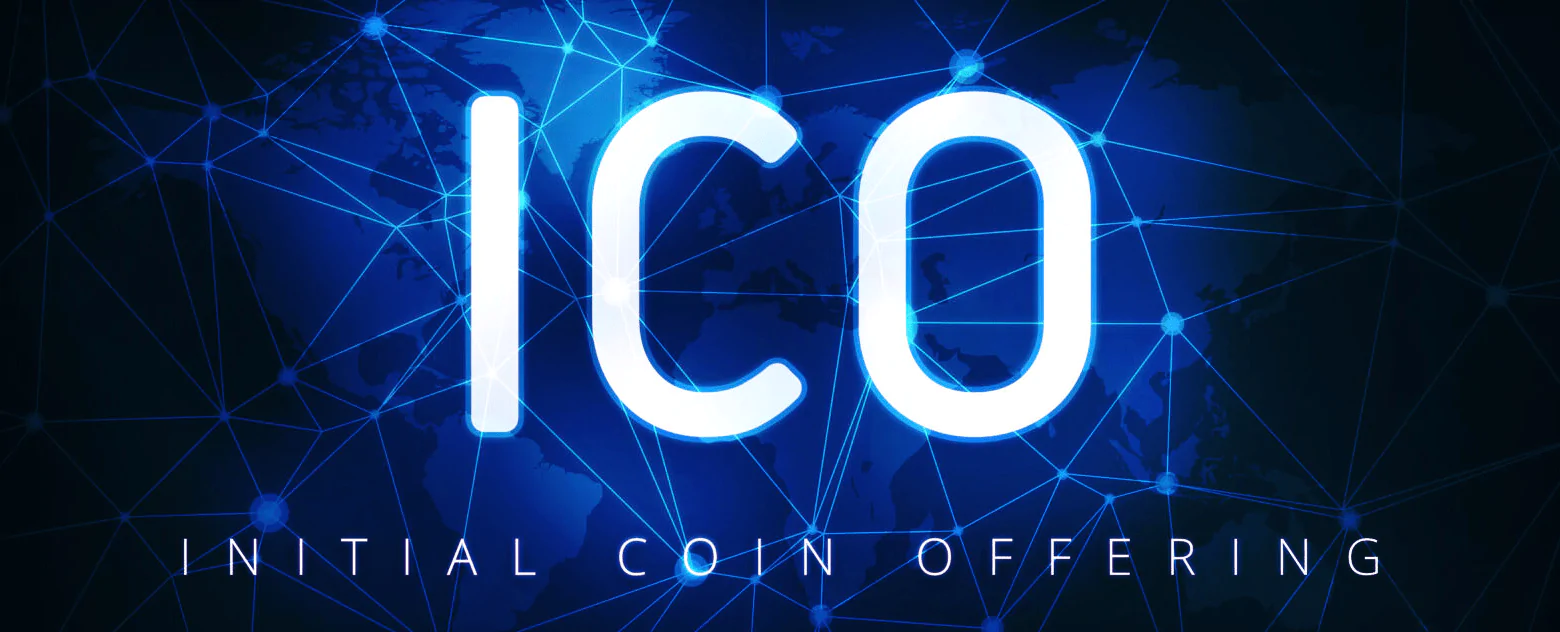As of July 2025, over 37 million unique cryptocurrencies had been created. This suggests that the cryptocurrency market is overheated.
12.10.2023

What is an IPO?
An Initial Public Offering (IPO) is a process in which a company offers new shares for purchase by investors on the stock exchange.
When a company decides to conduct an IPO, it issues additional shares and places them on the open market through the stock exchange. Companies typically engage investment bankers to assist in this process, including determining the share price and organizing the entire offering.
IPOs allow companies to raise additional funds to finance their future growth and development. It also provides an opportunity for a wide range of investors to buy and sell the company’s shares on the open market. However, conducting an IPO comes with certain obligations and responsibilities towards shareholders and regulators, which is why not all companies choose to go public.
What is an ICO?
ICO stands for “Initial Coin Offering”, which is a method of financing used by companies that want to raise investments for the development of their blockchain-based projects.
In an ICO, a company issues and sells its own tokens or coins, which buyers can acquire with cryptocurrency (typically Bitcoin or Ethereum). The funds raised from token sales are used by the company to develop its project.
ICOs are often employed by startups that lack access to traditional financing methods such as an Initial Public Offering (IPO). However, ICOs are a relatively new and unregulated form of financing, which means there are risks for investors related to fraud, dishonesty, and uncertainty.
Advantages and Disadvantages of ICO
ICO has a number of advantages and disadvantages that can influence a company’s decision to use it.
Advantages of ICO:
- Accessibility: ICO allows companies to attract investments from anywhere in the world, without the need to involve traditional investors.
- Speed and Simplicity: ICO enables companies to quickly and easily secure funds for their project's development, avoiding complex and lengthy processes associated with IPOs or obtaining loans.
- Low Costs: Unlike traditional financing methods like IPOs, ICOs do not require companies to pay high commissions to investment banks and other intermediaries.
- Supporters may like to participate in a disruptive movement.
- Opportunity to earn a substantial amount of money.
Disadvantages of ICO:
- Poor Information Disclosure: Official documents may be incomplete or falsified.
- Lack of Regulation.
- Difficulties in Exiting Investments.
- Risk of Hacking and Fund Theft.
- Token Prices Can Be Highly Volatile.
- Risk of Blatant Fraud.
How ICO Work?
An Initial Coin Offering (ICO) is a process in which a company or project raises funds by offering investors new tokens or coins in exchange for cryptocurrency, such as Bitcoin or Ethereum. The operation of an ICO is based on the following principles:
- Preparation: The company develops the concept of its project, defines the goals and objectives of the ICO, and establishes the technical and legal framework for fundraising.
- Offer and Promotion: The company publicly announces its ICO, offering investors the opportunity to purchase tokens or coins of the project. Advertising is conducted through various channels, including websites, social media, blogs, and forums, to attract as many potential investors as possible.
- Sales: During the ICO, investors can purchase tokens or coins using cryptocurrency. This is typically done through a special platform or website provided by the company. The acquired tokens are registered on the blockchain, ensuring transaction transparency and security.
- Fundraising and Project Development: The funds obtained from the sale of tokens or coins are used by the company to finance the development and implementation of its project. This may include product development, platform creation, marketing, and expanding the project team.
- Interaction with Investors: The company maintains open communication with investors, providing them with regular project updates and engaging in dialogues regarding ICO and tokens-related issues.
Who Launches ICOs?
Anyone can participate in an ICO. Currently, this process is regulated rather minimally, so if you have the appropriate technology, you can launch your own ICO.
However, there are some issues to be cautious about. One of the main problems is that limited regulation allows scammers and fraudsters to easily abscond with large sums of money, deceiving people and presenting their ICO as legitimate.
ICOs are vulnerable to fraud, so investors should exercise extreme caution to avoid falling into the traps of scammers. It’s crucial to conduct thorough research to ensure the legitimacy of an ICO by examining its transparency and accountability.
Pay attention to their past experience in cryptography and blockchain. Don’t rely solely on colorful websites and brochures, which can be deceptive. Instead, do everything possible to find verifiable evidence of their authenticity.
If you find that their presence or reputation in the cryptocurrency world is questionable, it’s a serious warning sign. There have been cases where well-known personalities encouraged their followers to invest in specific ICOs that turned out to be fraudulent.
So, when dealing with ICOs, you should know that not all of them are what they appear to be. Regardless of who is promoting them, always be vigilant and conduct your own research to ensure their legality and reliability.
ICO Tokens
ICO tokens (Initial Coin Offering) are digital assets issued by companies as part of their ICO campaigns to raise funds for the development of their projects. Each project can give unique functions and properties to its tokens.
ICO tokens can be used to pay for services, goods, or work provided by the company, as well as to gain access to specific features or services. They can also serve as investment instruments, allowing token holders to profit from the successful development of the project.
However, it’s important to note that investing in ICOs comes with certain risks since these projects are often in the early stages of development and don’t have a full guarantee of viability. Additionally, the legal status of ICOs may vary in different countries, and potential investors should familiarize themselves with the legal aspects and regulatory environment of ICOs in their jurisdiction before investing.
In Conclusion
ICO (Initial Coin Offering) is a process in which a company issues and sells digital tokens to raise funding for its project. Within an ICO, investors can purchase the company’s tokens with the hope of their subsequent increase in value or gaining access to a product or service associated with the project.
It’s worth noting that ICO is a high-risk form of investment. Due to the fact that many ICO projects are in early stages of development, there is a possibility of failure or the project team’s inability to achieve its stated goals. Additionally, it’s important to consider that the regulation of ICOs can vary in different countries, potentially leading to legal and regulatory risks for investors.
Overall, participating in an ICO can present both potential opportunities and risks. It’s advisable to conduct thorough analysis and seek advice from financial and legal professionals before deciding to participate in an ICO.




